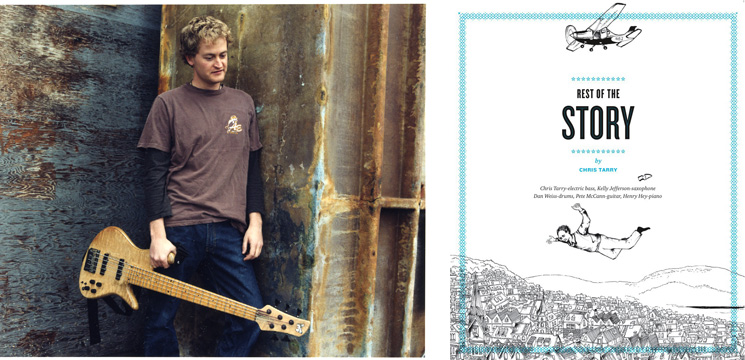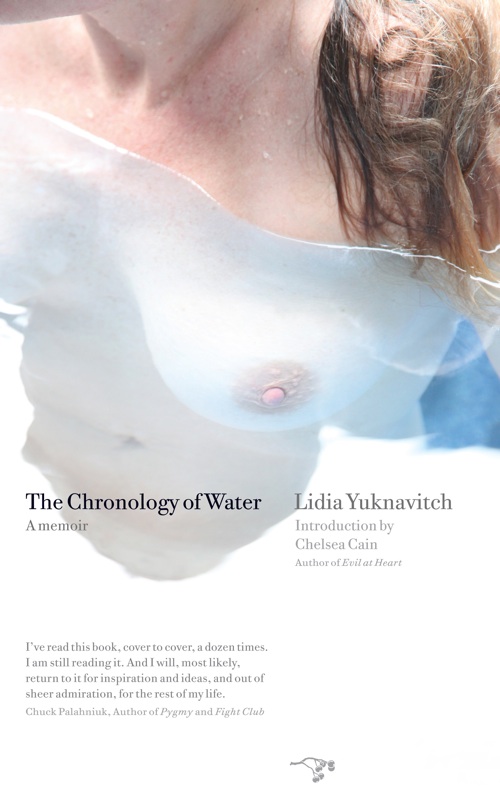
I am trying to find the right shape for a short story collection. The more I try to put together a cohesive body of work, the more I realize that organizing a short story collection is a matter of chemistry, of finding the perfect combination of elements that will create new matter. Even though my collection is largely out of my hands at this point, the shape of it has been in flux. I’m also trying to figure out what work to collect for a second and third collection so I’m looking both forward and backward. I wish there was some kind of instruction manual for this. When I first began assembling my full length collection, I had no idea what I was doing. I still feel that way. Part of the problem is that I have a lot to choose from. I’ve been writing and publishing since 1999, using four different names. Most of my earlier work wouldn’t be appropriate for a collection of the sort I am trying to assemble but it’s still there and some of it still worth considering.
I keep coming back to the same questions. What stories should I include? In what order should I place the stories? Why am I making these choices? How do I want readers to feel while they’re reading the collection? And after? How do I make readers fall in love with the book? How do I make them see what I’m trying to say? On the one hand, I could arrange a collection by theme because there are a few dominant themes in my writing but would that make the collection too uneven, not diverse enough in tone? I could arrange a collection with stories that all have female narrators or male narrators or that are written in the first person or second person. I could take a kitchen sink approach (my first attempt) to try and demonstrate the range of my writing. I just don’t know.
READ MORE >
Craft Notes / 38 Comments
March 11th, 2011 / 2:34 pm

Sometimes writers really surprise me. Rest of the Story is a short story collection and album by writer and electric bassist Chris Tarry. Actually, Rest of the Story is an album first with nine jazz compositions, then a small collection of fiction containing four really tight, interesting, at times surreal stories. The collection itself is the case for the compact disc containing the album. The album is actually the rest of the story. You have to buy Rest of the Story to understand how awesome the concept and how impeccably it is executed, is but there are some pictures below and here is a short video about the project.
READ MORE >
Author Spotlight / 9 Comments
March 9th, 2011 / 3:30 pm
David Duhr writes about Steve Almond’s DIY approach to publishing for Publishing Perspectives.
At Mother Jones, a primer on how to start your own country. I had no idea micronations existed. They seem similar to micropresses.
Aubrey Hirsch has some advice on what you can do with your novella. (No, not that.)
Why do writers abandon their novels? It’s a good question.
It is time for the Tournament of Books. Who are your favorites? I am rooting for Bad Marie.
Lady Journos is featuring lady writers.
Speaking of ladies, I Don’t Respect Female Expression, a chapbook of 11 stories by Frank Hinton, will be out at the end of April.
Joel Johnson wrote an article for Wired about Foxconn, iPhones, and the suicides of 17 employees.
Here’s a list of words that don’t exist in English and here is a similar list. (Thanks, Fiction Writers Review)
Kelly Davio offers some thoughts on writers and self-presentation.
The Wall Street Journal is doing such great literary coverage these days. Meghan O’Rourke writes about cadence in prose.
Roundup / 9 Comments
March 7th, 2011 / 11:23 pm
 I’ve spent the two days reading and re-reading Lidia Yuknavitch’s The Chronology of Water. After years of avoiding memoirs and thinking they were not for me, the past several months, I’ve been reading all kinds of memoirs and learning about the many different approaches to the genre. I might have to admit I really love memoirs. I don’t know if it’s because I’m very curious about the lives of others or if I am drawn to the confessional in nonfiction as much as I am in fiction but right now memoirs are speaking to me pretty seriously.
I’ve spent the two days reading and re-reading Lidia Yuknavitch’s The Chronology of Water. After years of avoiding memoirs and thinking they were not for me, the past several months, I’ve been reading all kinds of memoirs and learning about the many different approaches to the genre. I might have to admit I really love memoirs. I don’t know if it’s because I’m very curious about the lives of others or if I am drawn to the confessional in nonfiction as much as I am in fiction but right now memoirs are speaking to me pretty seriously.
I first heard about the book because I saw the cover here and last week I read this awesome essay on The Rumpus, by the author, about the cover and the heresy of a woman’s bared breast, nipple and all, on that cover. Then I heard about the book from a friend so I ordered it and the book arrived and I read it almost immediately and then I read it again and one more time for good measure.
The book itself is a fine, heavy object both literally and figuratively. The cover is gorgeous and when you read the book you’ll realize how appropriate it is to the writing. But even more than that, the paper is thick and slick and the design is clean and the cover has a nice matte coating. I enjoy these small details that contribute to a sensual, in the very sense of the word, reading experience.
In my previous posts about memoir, I’ve discussed how I find it difficult to review memoirs because it feels like you’re doing more than critiquing the writing, you’re also critiquing the life lived. This isn’t a review as much as it is me talking about a book that is really powerful and unlike any memoir I’ve yet read. I’m also interested in how this book can be used for teaching because it challenges the traditional memoir in really interesting ways and because, selfishly, one of the graduate students I’m serving on a committee for is writing a memoir as his thesis and these notes will help me in my work with him. As I’ve thought through this book, I’ve considered the various elements that really mark a shift from what I traditionally see in memoir writing: how the narrative deals with the body, how the memoir can be read as an open text through the use of absence, language invention, an alinear narrative structure, and decadent but controlled descriptions of emotion. Of course I’m going to end with emotion.
READ MORE >
28 Comments
March 3rd, 2011 / 3:30 pm
 Silver Sparrow, by Tayari Jones, is a novel where you know, from the first page, what the major tensions of the narrative are. You also get a sense of how the story will end. This is not to suggest that this novel is without its surprises or complexities; you will find both in this book. Nonetheless, Silver Sparrow is a book where how the writer leads the reader to an inevitable ending matters most. Normally, this approach of revealing so much of what is at stake in the early going might seem like a prescription for failure but such is not the case in what is a remarkable novel. Silver Sparrow is thoroughly engaging and although there is so much intense emotion driving the story forward, that emotion is expertly controlled, never becoming indulgent or melodramatic. We all come to reading for different reasons. I mostly read to be moved and engaged; with this book I very much was. I haven’t been able to stop reading this book since I got my hands on a copy.
Silver Sparrow, by Tayari Jones, is a novel where you know, from the first page, what the major tensions of the narrative are. You also get a sense of how the story will end. This is not to suggest that this novel is without its surprises or complexities; you will find both in this book. Nonetheless, Silver Sparrow is a book where how the writer leads the reader to an inevitable ending matters most. Normally, this approach of revealing so much of what is at stake in the early going might seem like a prescription for failure but such is not the case in what is a remarkable novel. Silver Sparrow is thoroughly engaging and although there is so much intense emotion driving the story forward, that emotion is expertly controlled, never becoming indulgent or melodramatic. We all come to reading for different reasons. I mostly read to be moved and engaged; with this book I very much was. I haven’t been able to stop reading this book since I got my hands on a copy.
The first chapter is entitled, “The Secret,” and that early revelation sets the tone. If there’s a secret, there’s something worth hiding and someone who does not know what is being hidden and there’s likely to be trouble. If there’s a secret, the truth is, eventually, going to come to light. That’s a lot of what this novel is about—the narrative slowly, carefuly bringing to light a truth many people are complicit in keeping hidden and what that deception ends up costing every one involved.
READ MORE >
8 Comments
March 1st, 2011 / 11:30 am

I started writing this on my personal blog but then I decided I would post it here. I got the most gorgeous letter today from someone who read my latest short story, “Strange Gods,” in the current issue of Black Warrior Review. In her letter, she talked about how important the story was to her and things so flattering I kind of choked a little. It was such a, I don’t know what it was, it was something to have a complete stranger I have never interacted with say, “your writing is important; your writing reached me.” She she thanked me for reminding her to fight the good fight. I have a point here that is not self-indulgent, I promise.
I receive the most correspondence about the stories I write about women, stories that are often intense and dark and intimate. Most of these letters come from women who thank me for telling these kinds of stories, for bringing a kind of testimony to certain women’s experiences and when I’m starting to lose faith in my writing, it is really humbling to hear that sort of thing. It reminds me that my stories may not reach everyone but they do reach some people and I think that’s what most of us want, to reach people, to make them feel, to make them bear witness.
There are a wide range of women’s experiences. A woman’s story is not just about violence or rape or the loss of an unborn or barely born child though, admittedly, those themes are the foundation of most of my writing. There are happier stories, painful stories, easier stories, different stories that are just as complex and necessary and important. As far as I’m concerned, any story that speaks to a woman’s experience is important. Now, please don’t misinterpret what I am saying. To affirm one kind of story is not to disaffirm another. Men’s stories are just as important but this not about that.
READ MORE >
Random / 65 Comments
February 23rd, 2011 / 7:06 pm





